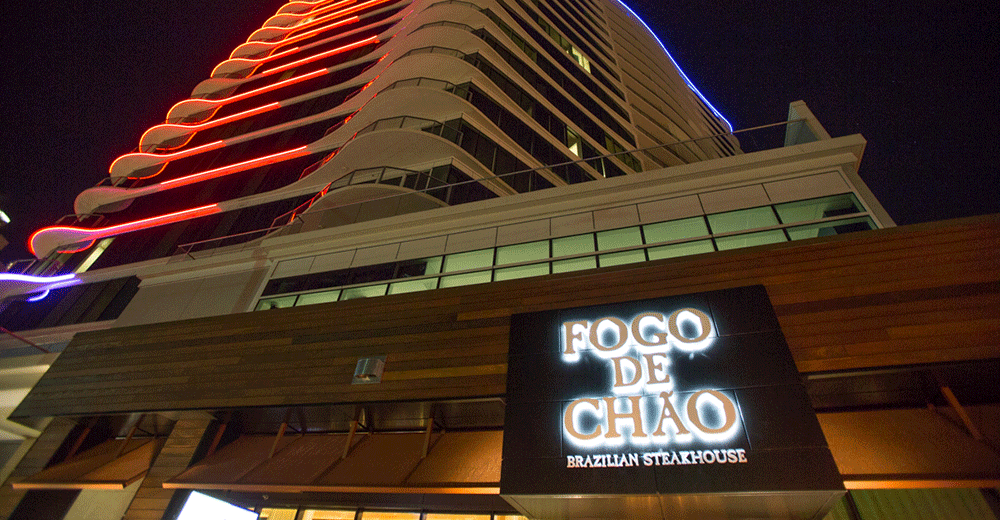Private-equity firm cites unit economics, brand positioning as positive factors
Sentinel Capital Partners has acquired quick-service seafood chain Captain D’s from Centre Partners Management LLC, making it the fifth restaurant chain currently in the New York City-based private-equity firm’s portfolio.
Terms of the purchase were not disclosed.
Nashville-based Captain D’s operates 303 restaurants and franchises an additional 227, mostly in the Southeast and Midwest.
“With Captain D’s seafood menu based on ocean-caught fish and a beach-themed dining format, it is uniquely positioned in the QSR market, a sub category that has outgrown the broader restaurant industry since 2011,” Sentinel said in a press release announcing the purchase.
Sentinel owns two other specialty limited-service chains: Fazoli’s, which specializes in Italian pasta, and Newk’s Eatery, which has a broad menu focused on scratch cooking. It also owns family-dining chain Huddle House and casual-dining chain TGI Fridays.
“We are very excited to partner with Captain D’s highly-experienced and accomplished management team,” Sentinel senior partner John McCormack said in a statement. “Captain D’s holds a unique market position and was recently recognized as one of the top 10 brands in America for consumer loyalty. Captain D’s continues to attract younger guests and is the clear category leader. Moreover, its same-store-sales growth over the past decade is in the very top QSR tier regardless of category.”
For the year ended December 2016, Captain D’s had $543.6 million in sales, up by 2.24 percent from the previous year, and it opened a net six locations, according to Nation’s Restaurant News’ Top 100 report.
It has attributed some of that growth to its grilled fish platform, introduced in 2014.
Captain D’s ranked eighth in NRN’s Consumer Picks survey in terms of brand loyalty. NRN conducted the survey in partnership with Datassential.
CEO Phil Greifeld, who has led Captain D’s for seven years, and, incidentally, is also a previous Huddle House CEO, said, “Sentinel’s more than two decades of experience in the restaurant franchising sector makes the firm an ideal partner for us as we enter a new phase of expansion. We see significant opportunities to grow inside our existing footprint as well as into new regions. Our brand has never been stronger.”
Bruce Pollack, managing partner of Centre Partners, said in a press release: “Through our partnership with Phil Greifeld and his management team, we revitalized the Captain D's brand, accelerated growth through new unit openings and improved performance through best-in-class execution. Captain D's is well positioned for continued growth and we wish the team every success under new ownership.”
Sentinel partner Michael Fabian praised the chain’s appeal to franchisees.
“Captain D’s provides highly attractive and consistent unit economics for its franchise partners,” he said. “This has fueled substantial growth in new franchise sales and openings over the last several years. We look forward to partnering with Phil and his talented team to help accelerate this growth in years ahead.”
Captain D’s has enjoyed same-store sales growth for the past six years. In 2015 its average unit volume exceeded $1 million, and it increased to $1.06 million in 2016, according to NRN Top 100 data.
Fabian told NRN that Captain D’s would maintain its positioning as a quick service brand, although he said it also had some fast-casual elements, including its grilled fish platform and interiors that have been upgraded in recent years.
He added that some locations employ fast-casual-style service, taking orders at the counter but delivering food to customers’ tables.
“They’re testing that out, so that’s probably the direction they’re going,” he said.
“We do think it can play in [the fast-casual] space a little bit, but there’s a large group of people who like the value and, frankly, the food, in fast food, and we’re accepting of what that is too and think it’s a good spot.”
He added that there was “room for both” customers who like the new grilled platform and those who enjoy the traditional fried items.
Fabian said they wanted to expand the brand’s geographical footprint.
“We think there is a decent amount of room to open within the Southeast footprint. We’re believers that as you grow — and we would like to expand geographically — that you’ve got to do that in concentric circles,” moving to states adjacent to existing markets, he said.
He added that the chain’s management felt that Texas and Louisiana were promising markets.
“Definitely there will be some focus there,” he said.
Contact Bret Thorn at bret.thorn@KNect365.com
Follow him on Twitter: @FoodWriterDiary
Dec. 18, 2017: This story has been updated with additional comments from Michael Fabian


 This post is part of the On the Margin blog.
This post is part of the On the Margin blog.

 Los Angeles-based Brentwood has a broad restaurant investment portfolio that includes Blaze Pizza, Lazy Dog Restaurants, Pacific Catch and Veggie Grill.
Los Angeles-based Brentwood has a broad restaurant investment portfolio that includes Blaze Pizza, Lazy Dog Restaurants, Pacific Catch and Veggie Grill.  Founded by Lauren Bailey and Craig DeMarco, Upward launched in 2001 with Postino, which was designed to be an accessible and welcoming wine bar.
Founded by Lauren Bailey and Craig DeMarco, Upward launched in 2001 with Postino, which was designed to be an accessible and welcoming wine bar. 








































 Ruby Tuesday Inc. said Aziz Hashim, founder and managing partner of NRD Capital, would serve as interim CEO as the company searches for a permanent successor to Jim Hyatt, who has served as CEO and president.
Ruby Tuesday Inc. said Aziz Hashim, founder and managing partner of NRD Capital, would serve as interim CEO as the company searches for a permanent successor to Jim Hyatt, who has served as CEO and president.
 Capital Spring has about $1.3 billion in assets under management, representing about 4,000 restaurant locations, said Richard Fitzgerald (left), the company’s co-founder and managing partner, at this week’s ICR Conference.
Capital Spring has about $1.3 billion in assets under management, representing about 4,000 restaurant locations, said Richard Fitzgerald (left), the company’s co-founder and managing partner, at this week’s ICR Conference.













